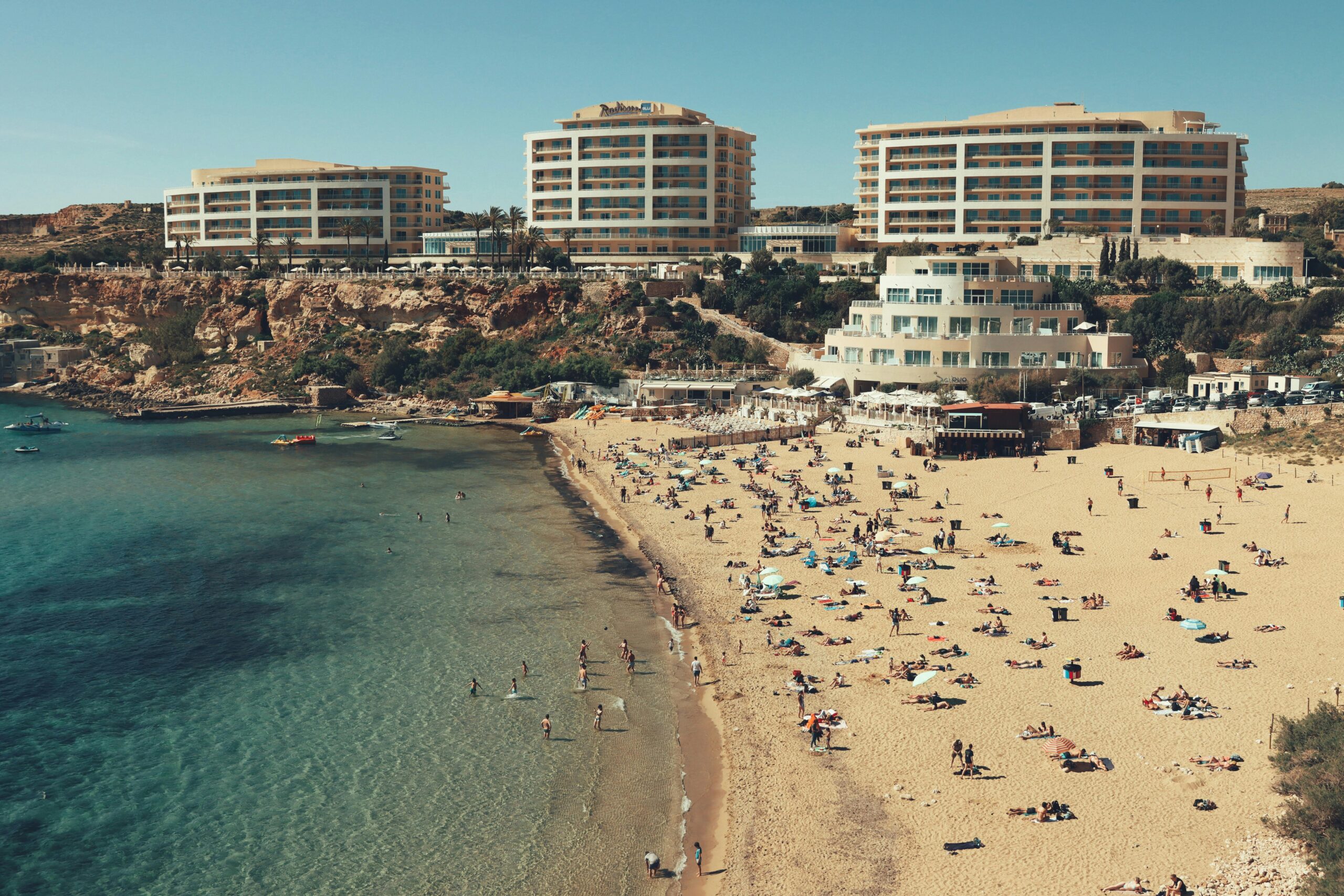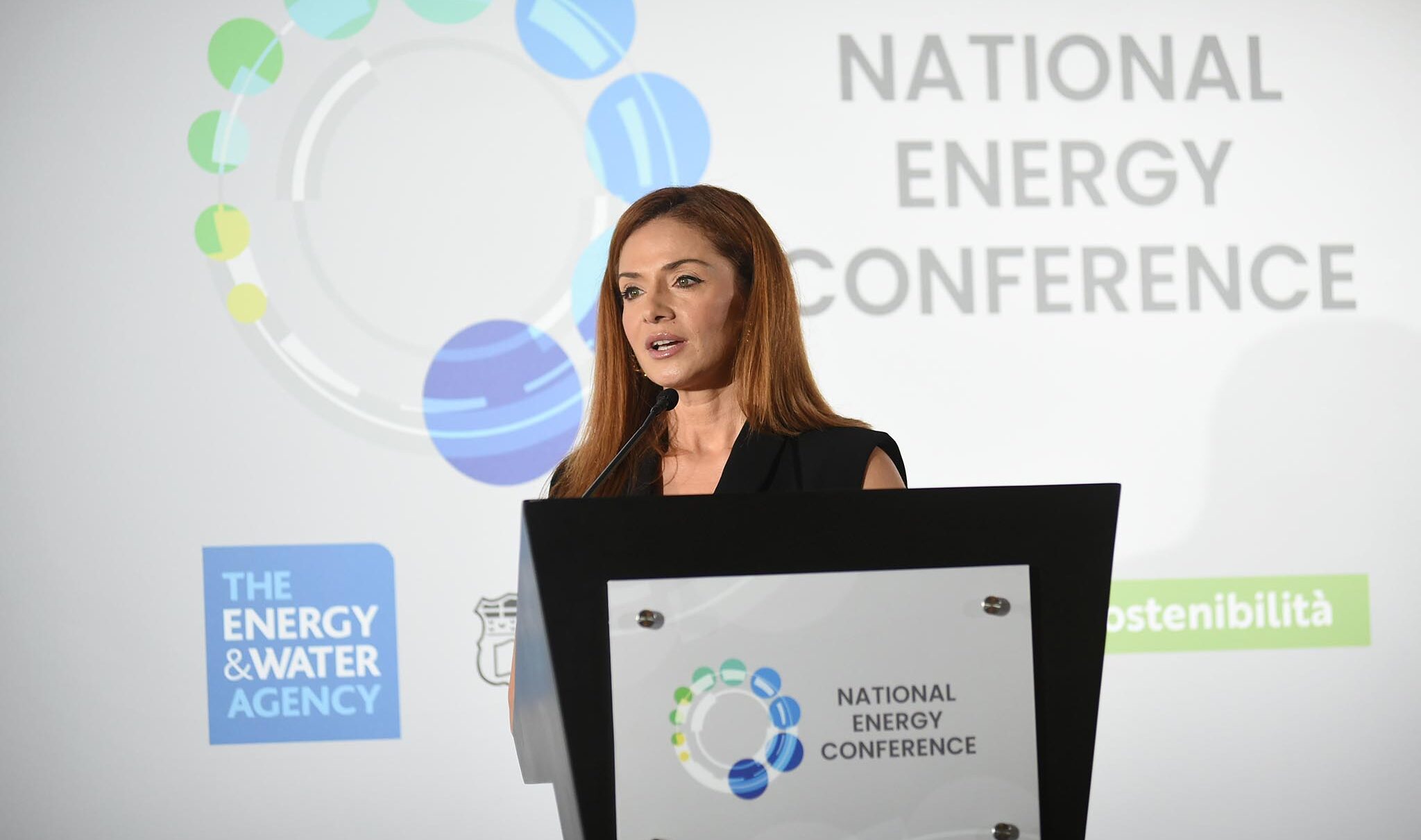Undoubtedly, one of the biggest attractions Malta offers investors is its advantageous tax regime. There are no withholding taxes on dividends, interest, royalties, and proceeds from liquidation distributed to non-residents, no separate capital gains tax, and no wealth or inheritance taxes. Stamp duty is levied on the transfer of moveable and immoveable assets, but companies carrying out international activities are exempt.
Residents’ individual income tax is progressive, with the highest tax bracket being 35 per cent for those with incomes over €60,000, notwithstanding the many exemptions and incentives on offer for professionals with skills that are in high demand.
Corporate profits are taxed at a nominal 35 per cent rate, and there is no separate corporate tax structure. To avoid double taxation, when these profits are distributed as dividends to shareholders, the recipients are not required to list these dividends as income in their tax return (this is known as the imputation system). However, the real attraction, for shareholders, is the option to reclaim a portion of the income tax paid at company level, which reduces the effective tax rate significantly (see below).
Global profits can be taxed in Malta if the company is incorporated in the country. On the other hand, a company incorporated outside Malta but whose business is controlled or managed in Malta is subject to the Maltese regime for all income earned in Malta, all gains realised in Malta, and crucially, all income from abroad to the extent it is remitted to Malta.
For a company operating in multiple jurisdictions to be deemed to be controlled from Malta, it requires a sufficient degree of substance, which can be achieved by having directors’ and shareholders’ meetings in Malta, ensuring that all decisions in relation to the company are taken on Maltese territory, such as at a registered office with employees.
Since 2019’s introduction of a Patent Box Regime, refunds can also be claimed on income derived from qualifying intellectual property – a solution particularly attractive to companies operating in the FinTech or blockchain spaces.
Maltese tax law also makes special provisions for holding companies, consolidated groups, and investment vehicles, among other formations, and also offers the possibility of relief when tax is incurred abroad (see below), making available a wealth of opportunities for advantageous financial set-ups.
It is important to note that a review of the corporate tax regime has been floated, but was shelved at the time of going to print. Prospective investors would do well to ask their local service providers for the latest news regarding the new tax rules, but should not let such consideration prevent them from taking the plunge into Malta – the authorities’ declared intention, when reform was on the table, was to maintain the jurisdiction’s competitive edge, whatever shape any new regulations, drafted in collaboration with industry stakeholders, could have.
Consumption Tax
Malta levies a tax on consumption in line with most other European Union countries. The Value Added Tax (VAT) is paid in only one country under EU rules, and the standard rate is set at 18 per cent in Malta. Certain economic activities are subject to reduced rates, with accommodation, for example subject to a 7 per cent VAT rate.
Medical accessories and domestic help services, among others, fall under the 5 per cent rate, while food, pharmaceuticals, and all exports are charged 0 per cent. Certain sectors may benefit from competitive VAT calculation, including ship and aircraft registrations, so be sure to consult a financial advisor to see whether your investment is eligible.
Tax Planning
Malta’s tax regime has served as a cornerstone of its development over the years, attracting attention from multinational conglomerates, investment funds, and every other kind of company. In fact, many first hear of Malta after asking their financial advisor to suggest onshore tax efficient jurisdictions. The benefits on offer are significant, allowing for what is currently the lowest effective tax rate in the EU, and the system’s focus on one main element – income tax – makes for clear (if not entirely straightforward) tax planning.
There are no withholding taxes on dividends, interest, royalties, and proceeds from liquidation distributed to non-residents, no separate capital gains tax, and no wealth or inheritance taxes. Stamp duty is levied on the transfer of moveable and immoveable assets, but companies carrying out international activities are exempt.
No transfer pricing rules exist yet, although plans are underway for them to be implemented in accordance with the current global standards related to the arm’s length principle.
Meanwhile, Malta’s extensive network of taxation treaties and unilateral tax relief protects investors and entrepreneurs from incurring double taxation, while specialised provisions enhance its attractiveness for companies of all types and sizes.
The below is meant to serve as an introduction and an overview of the formulation and advantages of Malta’s tax regime. Each element contains other criteria for eligibility and allows investors different routes to deriving benefit, intricacies that are impossible to present to their full extent here. The engagement of a local tax advisor is of course optional, but very strongly recommended.
Malta’s Tax Refund System
Companies incorporated in Malta and having tax residency in the jurisdiction are subject to the standard corporate tax rate of 35 per cent. However, foreign-owned structures benefit from an attractive refund system that can bring the effective rate down to 5 per cent or even lower, making Malta’s offering one of the most attractive in Europe.
Taxable profits (or losses) are calculated after adjusting for depreciation, unrealised losses and profits, and all expenses incurred in the production of income. Companies may also deduct from their taxable income the deemed interest expense on capital invested (Notional Interest Deduction – NID).
Once the chargeable income is calculated and the taxes due are paid, dividends can be distributed to shareholders. These can take the form of accounting entries, with retained profits transferred to an account payable to the shareholder, at which point the dividend is considered paid. This two-tier structure can be advantageous if profits are intended to be re-invested without becoming subject to taxation in any other state.
With all expenses deducted, taxes paid, and dividends distributed, shareholders become entitled to claim a tax refund on the taxes paid by the company. The refund rates in effect depend on the kind of income the company declared.
Dividend income derived from a participatory holding or income deriving from the disposal of such holding is eligible for a 100 per cent tax refund.
Passive interest, royalties, capital gains, and income from a participatory holding which does not qualify for the participation exemption is eligible for a 5/7ths tax refund.
If double taxation relief has been claimed, the shareholder is eligible for a 2/3rds tax refund.
In all other cases, a 6/7ths tax refund applies.
When combined with Malta’s extensive double tax treaty network and the proper planning and structure, the refund system allows investors to achieve considerable fiscal efficiency by using Malta as a base.
Tax Relief in Malta
Apart from the network of double tax treaties, Maltese tax law also provides for unilateral relief and a flat rate foreign tax credit (FRFTC), the latter being only available to companies. All forms of tax relief offered in Malta take the form of a tax credit granted for foreign tax levied on income arising in other countries, with the credit amounting to the lower of the Maltese tax on the foreign income and the foreign tax paid.
Relief provided under tax treaties and that provided unilaterally result in an effective null tax rate where the foreign taxes are equal to or exceed the 35 per cent Maltese income tax. The same applies for dividends, which become exempt from tax when the foreign withholding tax and other taxes applicable to them reach or exceed 35 per cent.
In the case of the FRFTC, set at 25 per cent, this applies when foreign income is deemed to have already been subject to tax abroad. Companies may therefore add 25 per cent to the net amount received in Malta, and deduct eligible expenses from this aggregate amount to arrive at their taxable income. Once the tax due in Malta is calculated from this amount, the FRFTC amount can be deducted from the tax charge. This credit is limited to 85 per cent of the Maltese tax due before deducting the credit itself.
Transfer Duties in Malta
The most significant stamp duty is levied on documents related to the transfer of immoveable property in Malta, standing at 5 per cent (2 per cent in Gozo). This extends to the shares of a company whose main holdings are constituted of immoveable property.
In other cases, the transfer of company shares is subject to a 2 per cent duty, although mergers, de-mergers, and other kinds of corporate re-organisation are exempt. A considerable number of other instances of acquisition or disposal of marketable securities are also exempt, including when involving licensed collective investment schemes and companies with over 50 per cent foreign shareholding that carry on more than 90 per cent of their business outside of Malta.
Qualifying Participation Tax Rules
Malta operates a special tax regime for income derived from subsidiaries, through which dividend and capital gains may be exempt from tax in Malta as long as certain conditions regarding its equity stocks are met. The system draws a lot of interest from multinational groups looking for an efficient holding structure, as well as from investment portfolios involved in the ownership, management, and administration of equity holdings in other companies.
The rules hinge on the nature and extent of the Malta-based company’s holdings in other entities, which determine whether such holdings qualify as participatory. A participating holding is typically an equity shareholding of at least 5 per cent, although other tests may apply, such as its worth, the time it has been held for, and whether the stock is held for the furtherance of its own business rather than for trading purposes – shares in other companies held for the purpose of trading do not qualify.
Participatory holdings must also be incorporated or resident in the EU and derive less than half of their income from passive interest, though once again a number of alternative tests may be applied.
Consolidated Group Tax Rules
Companies forming part of a group may elect to form a fiscal unit and thereby be treated as a single taxpayer. Intra-group transactions fall outside the scope of Maltese income tax legislation, and losses may be surrendered by one company to another. Another benefit of this setup is that a fiscal unit may offset the refund due to shareholders against the income tax due by the company, allowing it to achieve a tax-efficient result without the need to distribute a dividend and thereafter apply for a tax refund, facilitating cash flow.
This feature was first carried in the Malta Invest 2023 edition. Malta Invest is the first-ever comprehensive international investment guide focusing on Malta as a destination. It is produced by Content House Group.
Featured Image:
Olia Danilevich / Pexels
93.1% of nights spent in Malta’s accommodations attributed to international visitors
Such figures highlight Malta's reliance on foreign tourism
Court acknowledges ‘difficult’ access to banking services in confectionary money laundering case
Witness after witness explained how services provided by the accused, while illegal, were useful
‘Our goal is to increase our share of renewable energy in the energy mix to 25% by 2030’ – Energy Minister
The Government has identified a preferred site for the offshore production of wind energy






